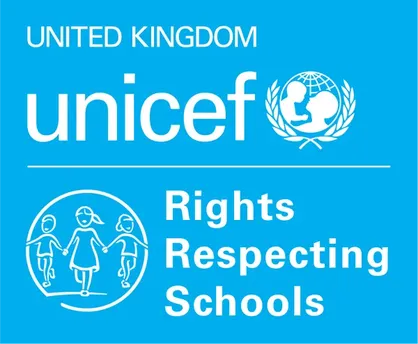Equity is put into practice at this Gold Rights Respecting School through participation in the Poverty Proofing process.
Headteacher Marie-Louise Binks discusses the role of RRSA and Poverty Proofing in supporting equity at Wingate Primary School, ensuring that the school is an inclusive and accessible hub for children and their families.
Poverty Proofing© the School Day is a tool created by Children North East which schools can use to identify the barriers children living in poverty face to engaging fully with school life and its opportunities. Focused on listening to the voices and experiences of young people, it offers a pathway for schools to address often unseen inequalities within their activities, helping them reduce stigma, break the link between educational attainment and financial background, and supports schools to explore the most effective way to spend Pupil Premium funding.
Removing the barriers poverty creates
Poverty Proofing is part of what we do alongside thinking about children’s rights. We consider everything in relation to the CRC and from the point of view of Poverty Proofing. When planning trips, a new after school club or thinking about resources in school we consider costs and impact on engagement.
Everyone in school from the pupils and lunchtime staff to the business manager consider poverty proofing when making decisions. Children and staff use their understanding of rights to support thinking about equity and justice. For example, children understand that it is fairer that we provide water bottles and pencil cases for all pupils removing any pressure on them to have the latest fashions or expensive designer items.
Linking equity and dignity
Children’s rights and equity are embedded in our ethos and values, and we discuss it as a standing item for staff meetings and inductions. All staff understand the importance of equity and choose their words carefully. For example, we don’t ask questions such as, ‘What did you get up to at the weekend?’ or ‘What did you get for Christmas?’ It isn’t that we aren’t interested, or don’t care, it’s that we don’t want to stigmatise or encourage children to compare themselves.
For example, we agreed that asking a child who doesn’t have a PE kit to wear someone else’s kit that probably hasn’t been washed and has been sitting in a box, wasn’t treating them with dignity. So instead, we provide PE bags with clean kit to the children that need it. They can leave the bag in school, and we will wash it. They know it is theirs and they can always wear clean PE kit.
Delivering enriching experiences with a lower costs attached
We have also introduced a flat rate of £5 for all school trips so families can plan and budget. We aim to bring professionals and services into school to deliver experiences linked to the curriculum wherever possible, ensuring children still have access to experiences but so that everyone can be involved. For example, we invite musicians, artists and the local pantomime to come in every year.
We also changed the way we celebrate charity days. We realised that even though we had stopped asking for money for days like Children in Need, when we were asking children to come into school in pyjamas, or wearing a colour, many families had been out and bought brand new clothes. So now Christmas Jumper Day has become Christmas Sock Day where each child decorates socks in school. Parents weren’t initially happy, but children understand and now make requests for inclusive activities. For example, we still have raffles but every child in school gets a free ticket. They can then buy more if they wish but it is important that every child feels included and can enjoy the experience. We have spare coats on our pegs. Any child can use them; if they forget their coat then they can still go straight out to play with one of the spares, no questions asked.
Inclusion and linking back to rights
The school is a hub in the community. Families come here for support and we have learnt to be able to help them. Poverty Proofing allows us to create a more inclusive environment where barriers to engagement for children and families are reduced. We still have an open door to families, while smaller issues and barriers have been removed, we are increasingly trusted with bigger problems. They know they can come to us, and we will try our best to help.
Poverty Proofing ties so closely into our child rights approach: our children know that rights are why we do it. They understand that the government must provide them with their rights so it is our job to ensure everyone has access. It is empowering for children to know that their voices are going to be heard, valued and acted on.
School context: Wingate Primary, a two-form entry primary school in Durham, North East of England, has been involved with UNICEF UK’s Rights Respecting School Award since 2008 and has held the Gold Award since 2013. As a long-standing Rights Respecting School, the United Nations Convention on the Rights of the Child is deeply embedded in the school’s culture and ethos and children’s rights feature across all aspects of school life. 41.6% of children at the school are eligible for Free School Meals.



